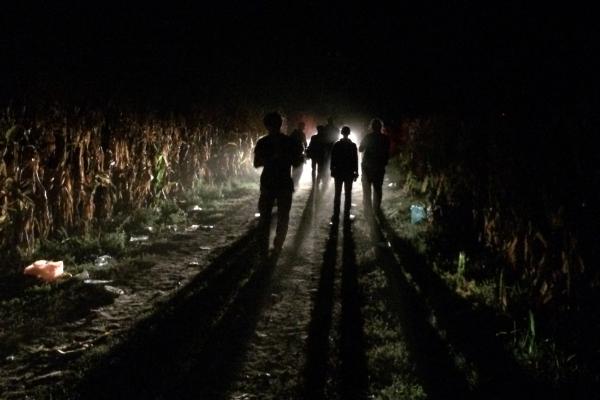Many of the refugees are well-educated people who speak English fluently, so it was not difficult for us to communicate with them. Some of them reported their experiences of walking for weeks and months since they left Syria. Their feet were hurting, and many walked with crutches or were assisted by wheelchairs. The most moving moments were the scenes of small children walking with their parents on the dusty dirt road through the cornfields leading into Croatia during the blistering heat of late summer.
In two days, with our four cars, we drove nearly 100 children, mothers, and people with walking difficulties the last miles to the Croatian border, and even farther when approved by the Croatian border police. All of us on the team had frequent moments when we could not hide our tears.
As we distributed food, water, clothes, and shoes to at least 2,000 refugees in three days and offered warm hugs and handshakes, we heard the refugees saying in a number of different ways: “Our people have forgotten us, but you Christians love us.”
Read the Full Article

